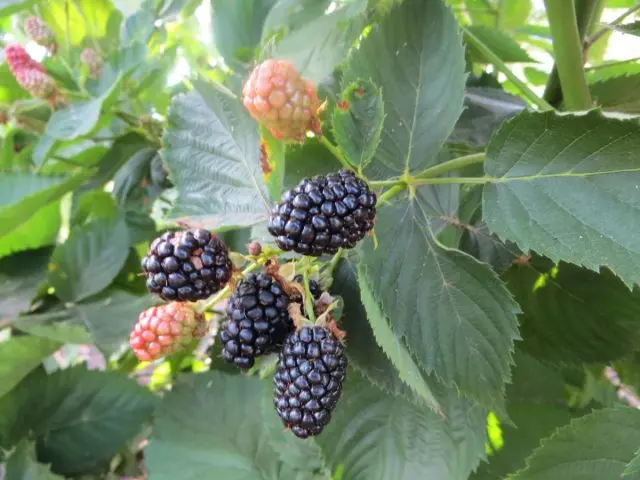Contents
Blackberries cannot be called an exotic berry. Everyone knows it, many have tried it. But unlike raspberries, which grow in almost all household plots, blackberries have not received wide distribution in Our Country and the countries of the former USSR. But times are changing, thanks to the Internet, television and print media, domestic farmers learn what crops are grown and bring a lot of income abroad.
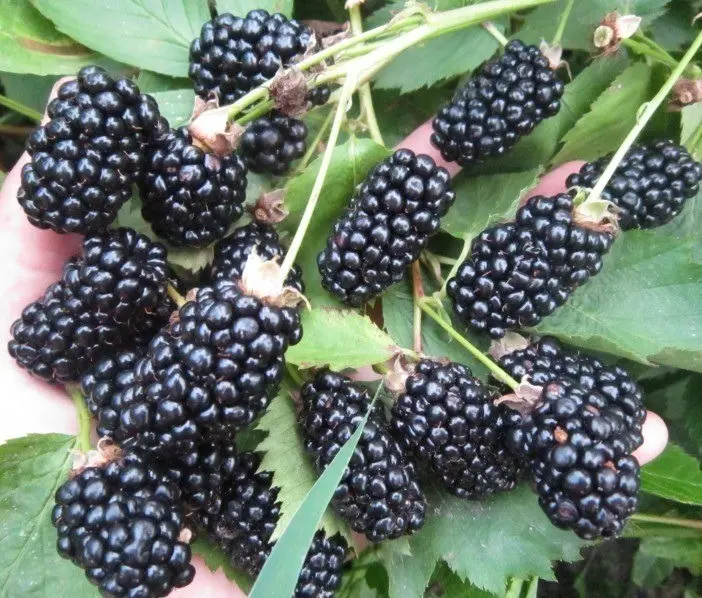
It turns out that blackberries are among the most popular berries. It doesn’t have to be sour and prickly. There are varieties that are thornless, productive and very tasty.
History of breeding
The garden blackberry variety Brzezina was bred at the Polish Institute of Horticulture, located in the city of Brzezina. Its authors are Agnieszka Orel and Jan Danek. The famous Black Satin and Darrow were the parent varieties of Brzezin’s blackberry.
The tasks of Polish breeding are somewhat different from those of North America. Overseas, the priority is to obtain varieties with excellent taste, even at the expense of yield. Polish scientists, on the other hand, set the task of breeding an easy-to-care blackberry that does not require shelter for the winter. Of course, good taste matters too.
The Brzezin variety is one of the newest. It was registered and patented in 2012, but went on sale only in 2015.
Description of berry culture
Variety Brzezina has not yet had time to reveal its potential. Three years is too short a time to talk about compliance with the description given by the breeders. Perhaps that is why gardeners’ reviews of Brzezin’s blackberries are somewhat different from the properties claimed in the patent. It is possible that climatic features also played a role here.
General idea of the variety
Blackberry Brzezina forms a powerful shrub with semi-spreading shoots. Juveniles are light green, turning light brown as the wood matures. In the first year after planting, 1-2 lashes are formed, in the future, the shoot-forming ability is very good.
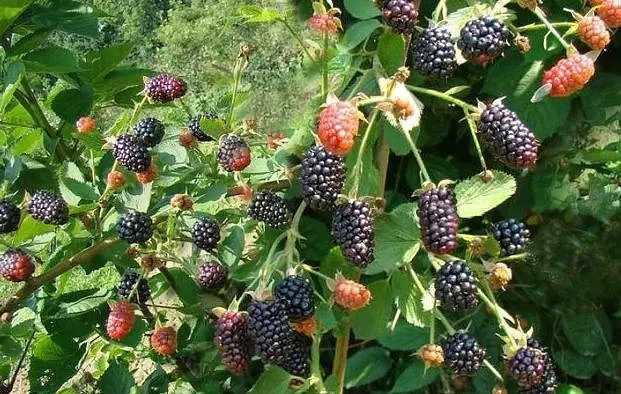
There are no spines, fruit twigs are short and numerous. Brzezin’s blackberry reaches fruiting age by three or four years. By this time, its shoots become thick, stiff and grow up to 3 m. They do not bend very well, which makes it difficult to shelter for the winter. A lot of lateral branches are formed, which makes the Brzezina bush look massive. On the contrary, there are few offspring suitable for reproduction. To increase their number, the blackberry root is specially damaged with a spade bayonet.
The leaves are a delicate green color, with numerous cloves. The root system is well developed. Fruiting occurs on the growth of the previous year.
Berries
Blackberry fruits Brzezina are collected in numerous brushes. Each carries about 10 berries. Poles create varieties suitable for commercial cultivation. Therefore, Brzezin’s blackberries are dense, beautiful and tolerate transportation well.
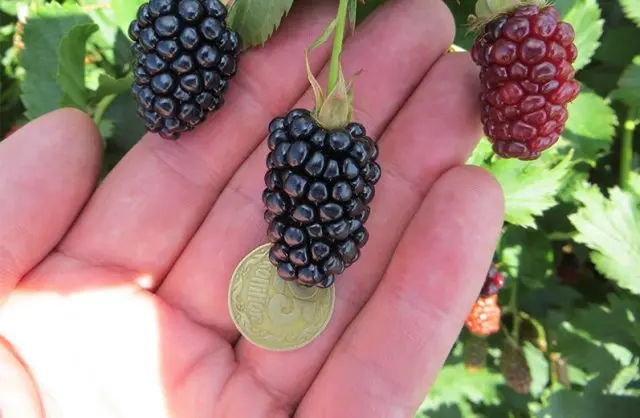
Since the variety is new, gardeners cannot say for sure what the fruits will be like when it reaches its full potential. But signal specimens look promising. The size of Brzezina berries is not aligned – on one bush there are fruits of 5-6 g and 7-9 g. Some foreign sources claim that as the blackberry grows older, their weight will increase to 8-12 g. Time will tell.
The color of the fruit is black, with a characteristic luster, the shape is oblong, similar to Karaka Black, but much smaller in size. In addition, the Brzezina berry does not resemble a giant elongated mulberry, but an ordinary one, moreover, a plump one. Look at the photo of Brzezin’s blackberry and Karaka Black – they really look alike, if you do not pay attention to the size of the fruit.
Brzezin
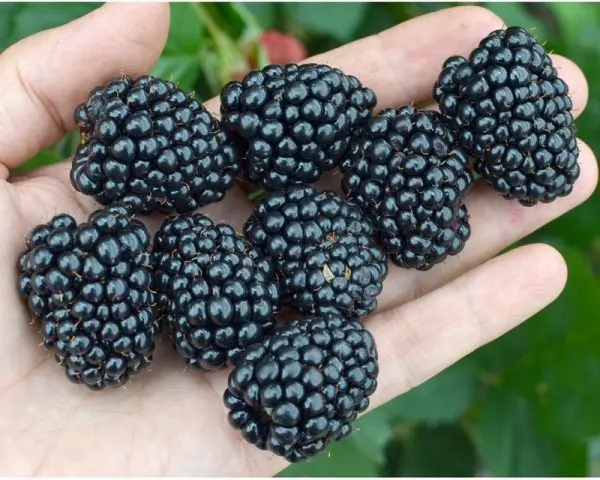
Karaka Black
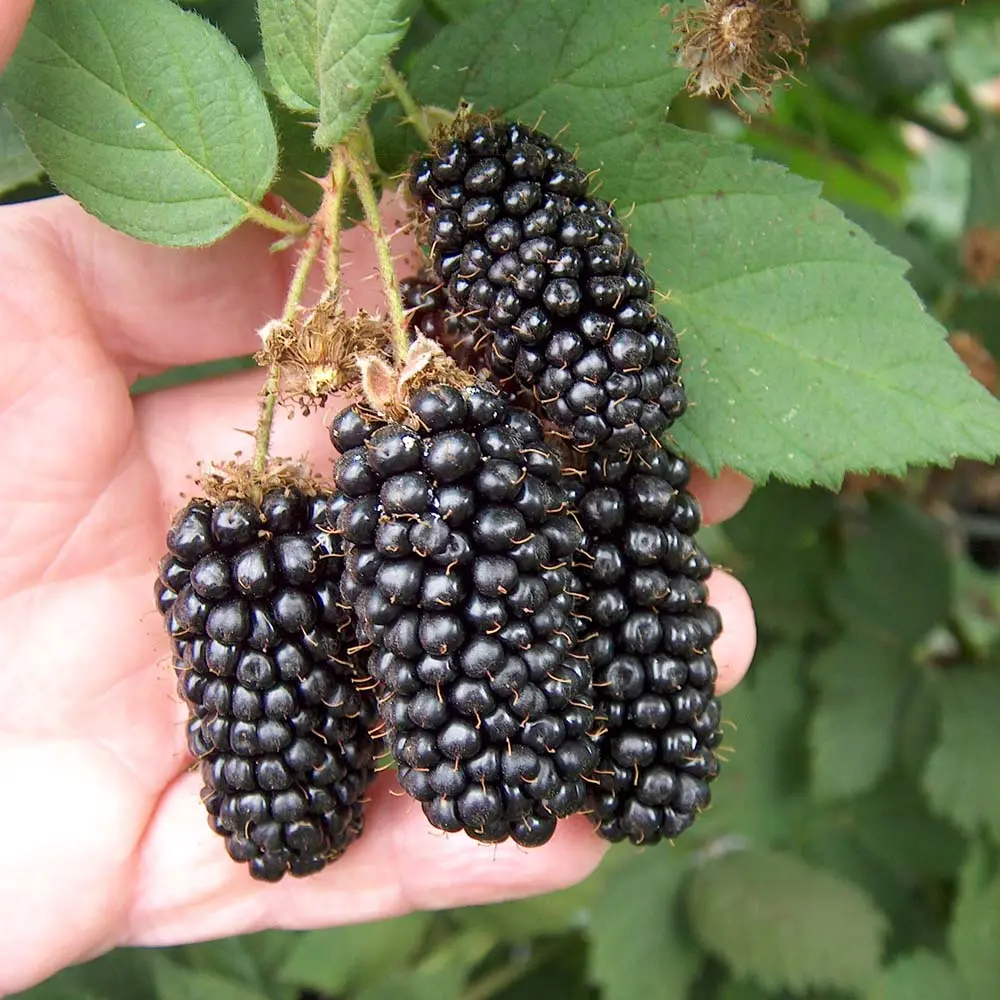
Taste of blackberry Brzezina, sweet, with a slight sourness and a pleasant aftertaste. The official tasting score is 4,6 points. Domestic gardeners have not yet managed to insert the variety into their ratings – probably too little time has passed.
Characterization
Here are the problems with the characteristics of Brzezin’s thornless blackberry. They differ from those claimed in the patent. Perhaps the variety has not yet had time to show itself, or the conditions even in Ukraine are very different from Polish ones. But it is possible that Brzezina blackberry hastened to advertise, wishful thinking. In any case, the answer can only be obtained in a few years, but for now let’s figure it out together.
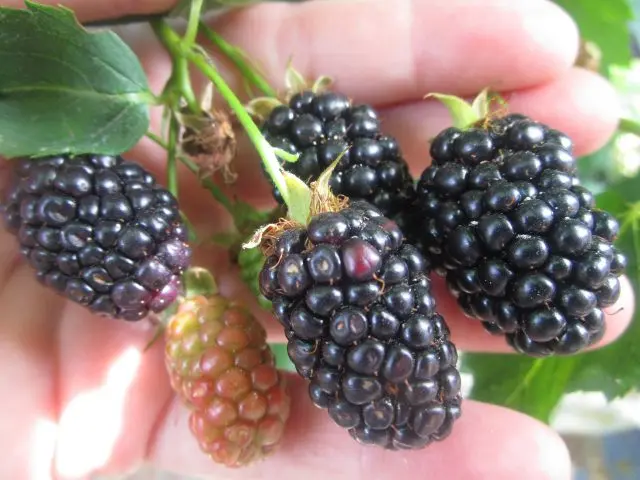
Main advantages
Blackberry Brzezina is declared as not requiring shelter for the winter. But it is prone to freezing flower buds, so if you leave the lashes without insulation, this will significantly reduce the yield.
The manufacturer claims that the variety tolerates drought and heat well. So much has been said and written about the love of culture for moist soil and regular watering that any gardener knows that blackberry drought resistance is a relative concept. But the fact that Brzezina berries are baked at high temperatures, residents of the southern regions need to know.
The transportability of berries is really on top – they are well transported, do not flow when stored in a cool room. The shoots are devoid of thorns along the entire length. In the care of Brzezin, it is not capricious, it makes the same demands on the composition of soils and placement as other blackberries.
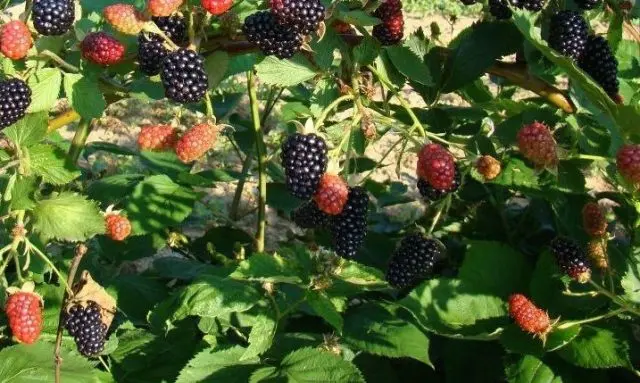
Flowering period and ripening period
Variety Brzezina is positioned as an extra-early variety. So far this is not true. It should rather be classified as mid-range. Fruiting begins in early July in the south, in other regions – later by 1-2 weeks.
Yield indicators, fruiting terms
It is too early to talk about the productivity of Brzezina. But the creators of the variety claim that about 8 kg of berries can be harvested from each adult blackberry bush. Perhaps, like Polar, Brzezina will be more prolific when sheltered for the winter, when flower buds will not be affected by frost.
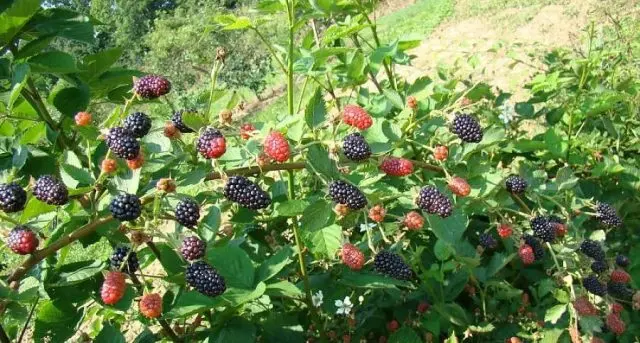
The fruiting period indicated in the description of the authors should be ahead of Loch Tay by 10-14 days. In practice, both varieties reach maturity at the same time. But for now, we can only observe the signal berries. Perhaps, having entered into full fruiting, Brzezina will indeed turn out to be an ultra-early variety.
The berries ripen unevenly, fruiting is extended for 5-6 weeks.
Scope of berries
Brzezin blackberries can be eaten fresh, processed and frozen for the winter. They are well transported and will soon appear on the shelves of European supermarkets.
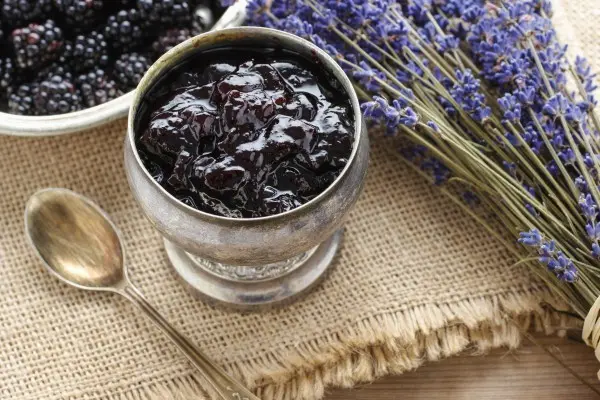
Disease and pest resistance
Blackberry Brzezin is resistant to diseases and pest attacks. But this variety must be processed at the beginning and end of the season for preventive purposes.
Advantages and disadvantages
We can only guess what advantages and disadvantages the Brzezina variety has – it has not yet entered full fruiting either in amateur gardens or on industrial plantations. And, as it turned out, it is reckless to rely on the description of breeders in this case. However, perhaps in 2-3 years Brzezina will show itself as an ultra-early variety, not afraid of frost and heat. It remains to wait a little.
The advantages of the Brzezina variety include:
- Large beautiful berries.
- Good resistance (as for blackberries) to drought.
- High resistance to diseases and pests.
- Good taste of berries.
- High frost resistance.
- No spikes.
- Early fruiting.
- Good transportability of berries.
- High yield.
- Good escaping ability.
- A small amount of overgrowth.
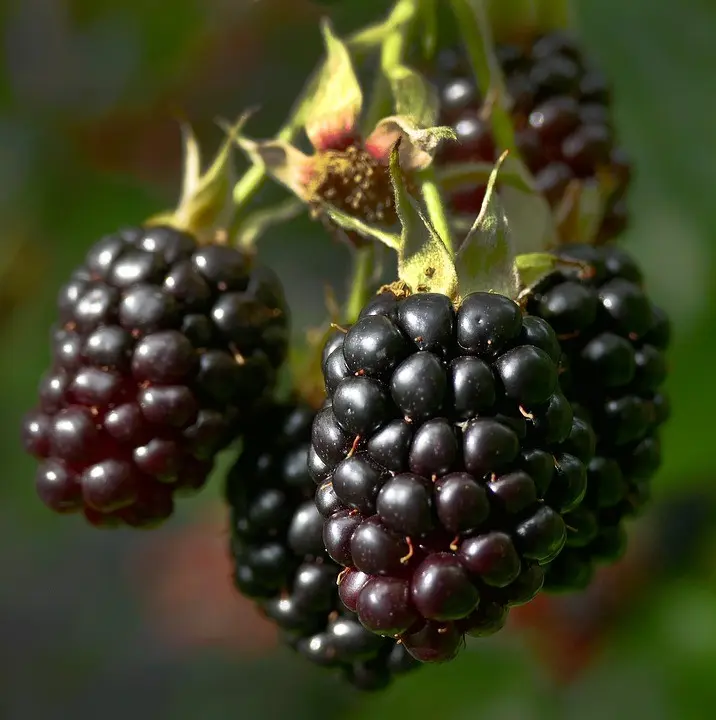
Among the shortcomings we note:
- Blackberry Brzezin still needs to be covered for the winter.
- Berries are damaged by extreme heat.
- Flower buds freeze without shelter even in the south.
- Thick hard shoots are difficult to tie to a support, remove and bend to the ground.
As you can see, so far there are more advantages than disadvantages. What else will please or upset us with the Brzezina blackberry variety, we will find out later.
Methods of reproduction
It is difficult to propagate the Brzezin variety by pulping or layering – hard shoots do not bend well. To tilt the whip to the ground, it will have to be taught to a horizontal position from the beginning of growth. You can propagate the variety:
- division of an adult bush;
- green or root cuttings;
- intentional damage to the root system (thus increasing the number of offspring).
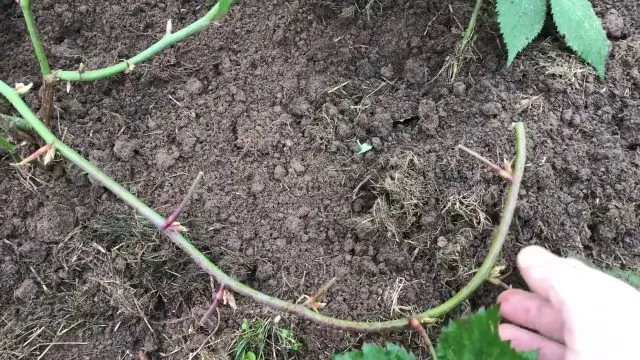
Rules of landing
Planting Brzezina practically does not differ from blackberries of other varieties. Any novice gardener can easily perform it – it is important here to choose the right place and prepare the soil.
Recommended dates
Like other blackberries, the Brzezina variety is planted in the south in early autumn so that the bush has time to take root before frost. In other regions, it is placed on the site in the spring. Then the blackberry will take root during the warm season and endure the winter well.
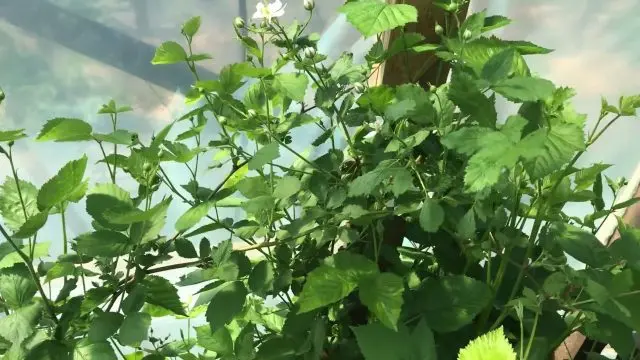
Choosing the right place
Blackberries love light fertile loams with a slightly acidic soil reaction. The landing site should be protected from the cold wind and well lit. In the southern regions, shading may be required at noon so that the berries do not bake in the sun. Groundwater to the surface of the earth should not come closer than 1-1,5 m.
Soil Preparation
Pits for planting are dug with a diameter of 50 cm and the same depth. The upper part of the soil is mixed with a bucket of humus, potash (50 g) and phosphorus (150 g) fertilizers. If the soil is excessively acidic, lime is added to it, an alkaline or neutral one is improved with high-moor (red) peat. Dense soil is enriched with sand, carbonate – with organic matter.
Then the landing pit is covered by 2/3 with the prepared mixture and filled with water. After 10-14 days, you can start planting.
Selection and preparation of seedlings
Brzezina is a new variety. You should buy it directly in the nursery or from trusted merchants. Blackberry shoots should be smooth, without cracks or other damage, the root system should be well developed. Brzezina is devoid of thorns, their presence signals that you are being sold a different variety.
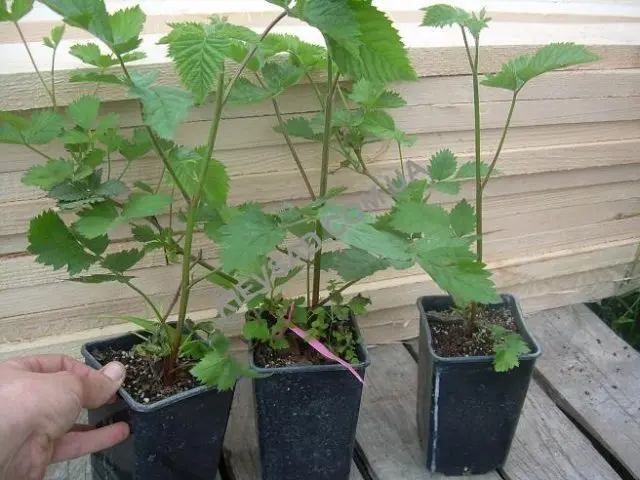
Preparation for planting consists of watering container seedlings or soaking an unprotected root for 12 hours.
Algorithm and landing scheme
There is no experience in growing blackberry variety Brzezina. Manufacturers recommend planting bushes in private gardens at a distance of 2-2,5 m from each other, in industrial plantations, observe an interval of 1-1,5 m. Leave 2,5-3 m between rows.
A young bush prepared and cut to 10-15 cm is planted in this way:
- An earth mound is formed in the center of the landing pit.
- Blackberry roots are evenly distributed around it.
- The pit is gradually covered with fertile soil, constantly compacting it to avoid voids. The root neck should be deepened by 1,5-2 cm.
- The seedling is watered. At least 10 liters are spent on each.
- The soil around the blackberry is mulched with humus or sour peat.
Culture aftercare
Caring for Brzezin’s blackberry will not present any particular problems. Polish breeders breed varieties that are easy to care for. The exception is shelter from frost – they believe that their blackberries will survive the cold season perfectly on a trellis. Unfortunately, in our conditions such wintering is unacceptable.
Growing principles
Although the shoots of Brzezina blackberry are tough and thick, they need to be tied to a trellis. One or two summer bushes do not need support – their lashes are still quite short. Starting from the third year, fruiting shoots are tied up on one side of the support, young growth on the other.
Regarding the need to pinch the shoots, opinions differ. Some gardeners say that side branches will be enough, others argue that shortening the tops will increase the yield of the variety. Which of them is right, time will tell.
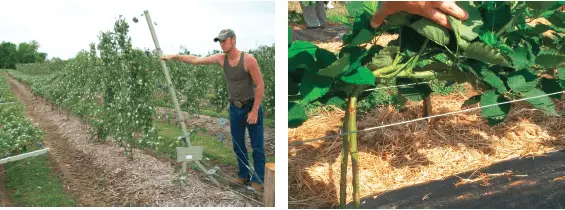
Necessary activities
After planting, the young bush is watered twice a week. In the future, the soil is constantly kept moist – blackberries are a moisture-loving crop. Just do not forget that waterlogging the soil will damage the roots.
You need to feed the Brzezina variety at least three times per season:
- nitrogen at the beginning of the growing season;
- a complete mineral complex during the formation and opening of blackberry buds;
- potassium monophosphate or other similar fertilizer after fruiting.
Foliar top dressing with the addition of chelates and epin will be useful throughout the season, but not more than once every 2 weeks.
Soil loosening is carried out in spring and autumn. In the middle of the growing season, it is better to mulch the soil – this will retain moisture, cover the roots of the blackberry from overheating and reduce the germination of weeds.
shrub pruning
Fruiting lashes are immediately cut out – they only take strength from the blackberry, prevent young lashes from ripening, on which berries will appear next season. The rationing of shoots in an adult bush is standard – 6-8 of the strongest branches are left.
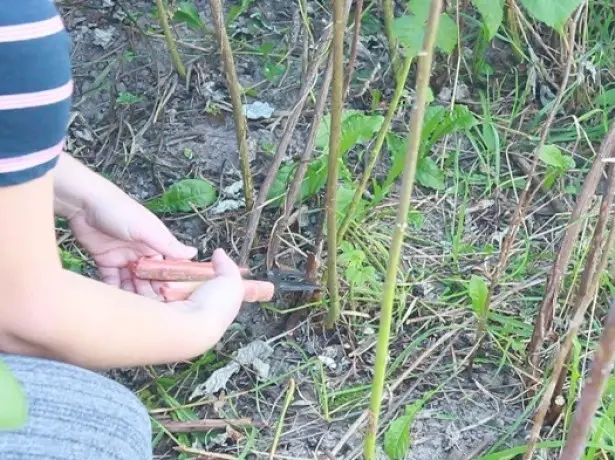
Whether it is necessary to pinch the tops for strong lateral branching, practice will show. Throughout the season, thin, weak and broken shoots are removed.
Preparation for winter
Although Polish breeders claim that the Brzezina variety in the southern regions can winter without shelter, it’s not worth the risk. This is what they said about other varieties – Polar, Guy, Rushay. And all of them had to be covered even in Ukraine in order to get a good harvest.
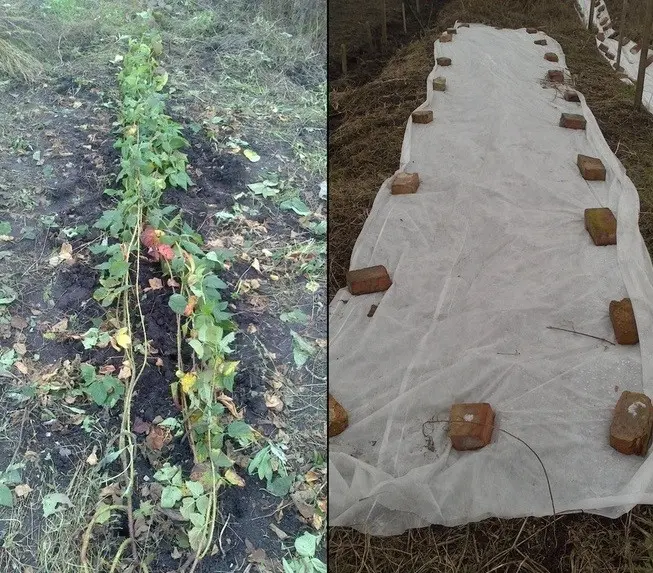
Blackberry Brzezina shoots are tough and thick. They should be taught to fall off the trellis from an early age. To do this, young lashes are pinned to the ground until they reach 30-40 cm, and only then they are raised to a support.
Tunnel shelters are best for Brzezin. But you can insulate blackberries with straw, dry corn stalks, spruce branches, spandbond or agrofibre.
Diseases and pests: methods of control and prevention
Blackberries rarely get sick and are affected by pests. This allows you to grow a crop without unnecessary treatments. But prevention is mandatory, especially with dense plantings. Variety Brzezina should be sprayed in spring and autumn with preparations containing copper.
You can not plant nightshade crops, strawberries or raspberries next to blackberries.
Conclusion
The Brzezina blackberry variety has not yet shown all its strengths and weaknesses. But planting him is definitely worth it, even if he does not become a new star. This is especially true for those who grow blackberries for sale – Polish varieties are better adapted to our conditions than North American ones.
